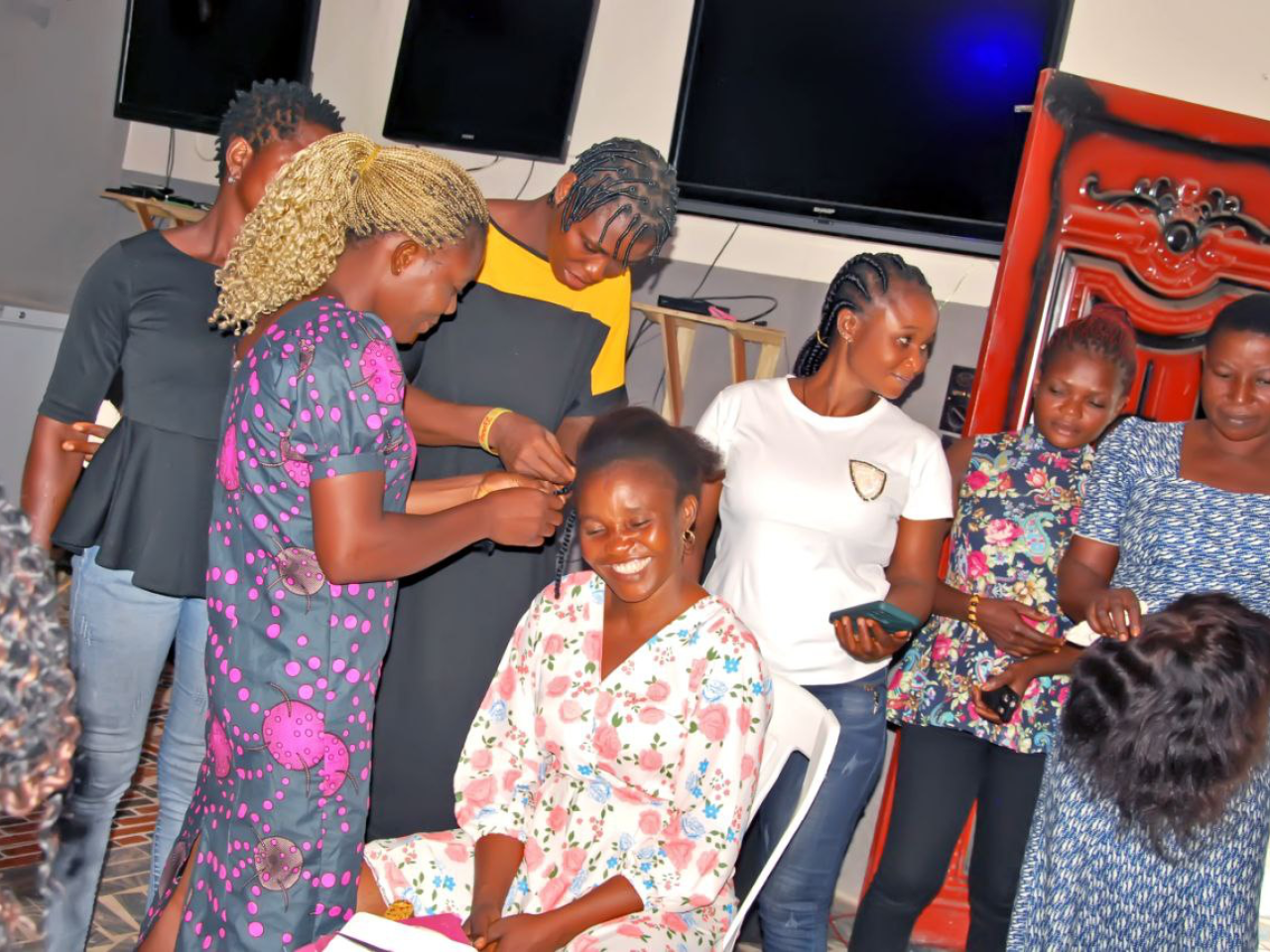From surviving to thriving: vocational training is helping to end violence against women and girls in Nigeria
LAGOS, Nigeria - Women and girls face many barriers to education, health care and decent work. These barriers perpetuate a state of vulnerability for women and girls, making them more susceptible to both poverty and gender-based violence.
"I was able to reclaim my self-esteem and gain back my economic independence." - Shekirat Ibrahim, Tailor
One of the key tools to break this cycle is economic empowerment; women who have the means to support themselves and their children face fewer challenges when leaving a situation of violence and are more able to assert their rights at home and in other areas of their life.
Since 2020, more than 10,000 survivors of physical, emotional, and psychological abuse have completed Spotlight Initiative-supported livelihood training in Nigeria. These women were equipped with skills to enhance their employment prospects and establish their own businesses, leading to financial independence.
“My financial dependence on my husband served as a catalyst for violence," says Shekirat Ibrahim, who trained as a tailor. "But through the Livelihood Empowerment Programme, I was able to reclaim my self-esteem and gain back my economic independence… My business has grown, and I now sew for local and international clients.”
"Today, I can send all five of my children back to school and provide support to my extended family." - Juliet*, Chef
Others say it has given them the power to ensure their children are taken care of.
“After years of enduring life-threatening domestic violence and being abandoned by my husband, I found myself broke and on the brink of suicide," says Juliet*, who completed training to become a chef. "Through the livelihood and economic empowerment provided by the Spotlight Initiative, I rose above my circumstances. Today, I can send all five of my children back to school and provide support to my extended family,” she says.
Blessing Ufot, also a tailor, says training has translated to more power in her home, as well as the community. "My happiness has soared, and I have gained back full acceptance from my family after being rejected. I can now contribute financially like any other family member. I am happy that I can support myself and not rely on others.”
The transformative power of livelihood and economic empowerment is further magnified through the 'girl-to-girl' initiative spearheaded by UNDP through Foundation for Resilient Empowerment and Development (FRED). This initiative sees graduates become agents of change by going back into their communities and training other vulnerable women and girls free of charge.
Regrettably, the global gender parity for labour-force participation has been steadily declining since 2009, according to the World Economic Forum, a trend that was further exacerbated by the COVID-19 pandemic.
Nonetheless, we know that this trend can be reversed. When women are granted equal access to education, training and job opportunities, communities thrive.
By empowering women and girls economically, we can usher in a future that is brighter, fairer and more equitable, where every person lives a life free from violence.
By Ikechukwu Uzor and Onyinye Ndubuisi
*Name has been changed to protect the survivor's identity.

